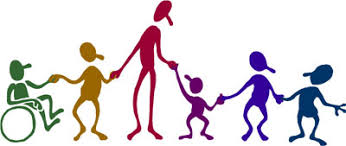 Service Learning Project- 4th Grade
Service Learning Project- 4th Grade
4th Grade: No Waste Lunches/Ecosystems/ChicoBags MCPS Indicator Social and Emotional Skills/ Values Content/Classroom Activities Support Activities Service Learning 6.4.3 Identify the survival needs and interactions between organisms and the environment -Describe a real life situation in nature in which two living things are interdependent 3.4.12 Cite evidence that individuals and groups of organisms interact with each other and their environment 3.4.13 Cite evidence that living organisms change environments in ways that can be either beneficial or detrimental to themselves and other living organisms -Identify and locate physical and human characteristics of places and explain how those characteristics have affected people living there -Describe the relationship between physical characteristics of a place and the location of human activities 1.4.8 Analyze data to identify trends and form conclusions 1.4.24 Design, plan, and construct things in response to a particular need or problem -Describe similarities and differences of regions in MD and the United States and how they have changed over time. Social Awareness: Appreciating and interacting with the environment, being able to have a positive perspective on how to help where we live Relationship Skills: Working together in groups to research and form a final informative product/collection drive Responsible Decision Making: Making decisions based on relevant factors and assessing all possible courses of action Caring: Understanding the need to help the ecosystems Respect: Understand how respect applies to the environment as well as each other - Students will discuss recycle, reduce, and reuse and introduce Somerset as a Green School and what that entails. -Students will brainstorm ways to reduce waste in the cafeteria and learn about what items in the cafeteria lunches are compostable, recyclable, and waste. -The students will learn how plastic bags contaminate the ecosystems. They will learn about the benefits of using something like the ChicoBag. The bags are able to carry up to 20 lbs of groceries and other items, they are washable, and they tuck inside themselves to make a very small packet with a clip to allow the owner to hook them onto purses, belts, or other personal items. -The students will research different ecosystems and learn how they are being impacted negatively by outside factors. (pollution) They will also research and on what people can do to help save these ecosystems. -Students will take a field trip in Sept./Oct. to Echo Hill to learn about SAV -Students will learn about reusing common items. They will bring in paper towel rolls and think of ways they can be reused. -Students will take a field trip to the recycling center (Dec./Jan.) -Students will purchase separate trash containers for the cafeteria with labels (Compost, Recycle, and Waste). Only 4th graders will place trash in the designated containers. -Students will keep track/graph daily amounts of compost and waste. -They will receive certificates/PAT for a No Waste Lunch Day and they will educate Kindergarten students about No Waste Lunches -Students will sell ChicoBags to community for a profit. -Students will then donate the money gained to an organization supporting recycling and helping the environment Reflection: Students will complete an exit card after support activities and after service events, as well as a Plus/Delta, in order to ensure and evaluate their level of understanding in helping this cause.

